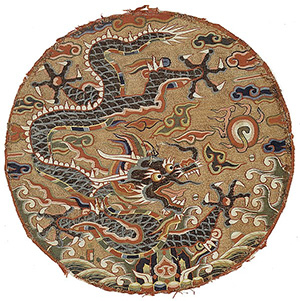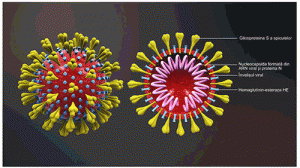We really need to know “how many”.
The NY Times tells the story of some Covid survivors who are forgetting entire holidays that were taken weeks before they got ill. They stare at photos and recall nothing… One 31 year old woman suffers from “white static” moments where she is so disoriented she washed the TV Remote, couldn’t remember who she was, or where she was.
This happens in other viral diseases too, as sufferers with chronic fatigue, ME, and ongoing inflammation will tell you. But the scale of it appears to be something unique. Months later some of these people are have given up their jobs.
‘I Feel Like I Have Dementia’: Brain Fog Plagues Covid Survivors
Pam Belluck, New York Times
After contracting the coronavirus in March, Michael Reagan lost all memory of his 12-day vacation in Paris, even though the trip was just a few weeks earlier.
Several weeks after Erica Taylor recovered from her Covid-19 symptoms of nausea and cough, she became confused and forgetful, failing to even recognize her own car, the only Toyota Prius in her apartment complex’s parking lot.
Lisa Mizelle, a veteran nurse practitioner at an urgent care clinic who fell ill with the virus in July, finds herself forgetting routine treatments and lab tests, and has to ask colleagues about terminology she used to know automatically.
Dr. Murphey, scientific director for a brain-wave technology company, who couldn’t summon the word “work” in a recent meeting, said research is crucial so symptoms are taken seriously.
This summer, Mr. Reagan [50], the vascular medicine specialist, turned the stove on to cook eggs and then absent-mindedly left to walk the dog, Wolff-Parkinson-White, named after a cardiac arrhythmia. Returning to discover a dangerously hot empty pan, he panicked and hasn’t cooked since.
…finger tremors and seizures, neurological symptoms that sometimes accompany brain fog, meant “there is no way I’m going to go into surgery and teach a doctor how to suture an artery,” he said.
Read the whole thing…
So far, MRI scans haven’t indicated damaged brain areas, neurologists say.
So that’s something.
As many as one third of hospitalized Covid patients have some memory loss 4 months later
There have been 8 million known cases of Covid in the US and a lot of unknown ones, so we’d expect some stories like this. We hope this is a small percentage, but other studies albeit small, suggest as many as a third of hospitalized patients have memory loss nearly 4 months later. Many of those will be mild memory dropouts, but the rate of hospitalization for influenza is about 1.6%. It is much higher in Covid, more in the order of 10%.
Confusion, delirium and other types of altered mental function, called encephalopathy, have occurred during hospitalization for Covid-19 respiratory problems, and a study found such patients needed longer hospitalizations, had higher mortality rates and often couldn’t manage daily activities right after hospitalization.
But research on long-lasting brain fog is just beginning. A French report in August on 120 patients who had been hospitalized found that 34 percent had memory loss and 27 percent had concentration problems months later.
The French Study by Garrigues et al asked 120 former hospital patients about their recovery 110 days later. They find that most survivors have still have ongoing symptoms over 3 months later:
We included 120 patients after a mean (±SD) of 110.9 (±11.1) days following admission. The most frequently reported persistent symptoms were fatigue (55%), dyspnoea (42%), loss of memory (34%), concentration and sleep disorders (28% and 30.8%, respectively). Comparisons between ward- and ICU patients led to no statistically significant differences regarding those symptoms. In both group, EQ-5D (mobility, self-care, pain, anxiety or depression, usual activity) was altered with a slight difference in pain in the ICU group.
About half were active workers before hand, and 70% had returned to work. Though that means 30% still had not. One quarter still had diarrhea, one in five suffered hair loss. Just under half reported ongoing shortness of breath. This is nearly four months later. It is not the flu.
From Comments at the NYT — one Harvard Doctor has lost three months of memory….
Clair Beard
Boston, MA
I had CoVID in March will full-blown encephalopathy. I was in bed at home for weeks, wondering how low my oxygen level had to be to make my lips that blue, believing that I was dying of heart disease, and unable to move in bed. I should add that I am a Harvard-trained physician with a full-time Harvard appointment and thirty years of work experience at two Longwood hospitals. I remember nothing until July and very little since then. My primary care tells me that I ‘dodged a bullet.’ I cannot describe the frustration and depression that comes with losing one’s intellect. I cannot imagine that cognitive therapy will help me, but I will give it a go if I can find a program. In a way, I am fortunate. I am resourced, have insurance, a good husband, and a home. Many, many people lack these resources. My best to those suffering from CoVID and more to those suffering the death of a loved one. Our lives could have been different with proper strategies and better management early on in the contagion.
Obviously people making policy decisions about the costs of lockdowns, or the value of stopping the virus need good data on these long haulers.
Is Covid the Goldilock’s Bioweapon?
As we mentioned last week, sometimes in war it’s better to maim and impair rather than kill outright. It’s almost as if SARS-2 has the right mix to divide the democracies of The West. Not too deadly, not too nice. It’s scary enough to have to do something, but not scary enough to get unity. If it was infectious ebola, it’d be gone.
 Meanwhile, whatever the CCP know about this virus, they appear to be as determined as ever not to let the virus roam. They are testing nine million people to contain the first outbreak in two months.
Meanwhile, whatever the CCP know about this virus, they appear to be as determined as ever not to let the virus roam. They are testing nine million people to contain the first outbreak in two months.
Otherwise the Chinese economy is recovering very well.
The list of potential long term problems grows. Heart, lungs, head:
Three quarters of mild to moderate Covid illnesses show heart damage. (Puntmann et al) Two out of three in that study were not even hospitalized and this study was done two months after they recovered. In May, the first reports of long term struggles came from Italy. In June, UK doctors loosely estimated that one in three may suffer long term damage. Last week UK doctors who were still sick six months after getting Covid-19, wrote to warn that their conditions were debilitating (Wise et al), with mystery fatigue, new allergies and cognitive problems. “Results from China, Japan, and USA show that half or more of asymptomatic cases have lung damage. The sobering UK health toll (so far) is 440,000 known cases, 42,000 deaths and 60,000 “Long Covid” (which means being affected for at least three months). CT scans of asymptomatic cases turned up a surprising 70% with signs of lung damage. (Though they are small non randomized studies Long, and Ran et al.).
The genetics says “Bioweapon”
- Dr. Li-Meng Yan claims The virus is man-made and spread to make damage
- Evidence grows that Coronavirus was man-made: the bat virus it “evolved” from appears to be faked
- The first Synthetic Pandemic? Man who discovered HIV says Coronavirus is man made. CCP destroyed the evidence.
My simple rule for new likely bioweapon releases is (and always was), to leave them un China. Why give any authoritarians the excuse to lock us down, or set up new cameras…
REFERENCES
Garrigues et al (2020) J Infect. Aug 25 Post-discharge persistent symptoms and health-related quality of life after hospitalization for COVID-19doi: 10.1016/j.jinf.2020.08.029 [Epub ahead of print]
Puntmann VO, Carerj ML, Wieters I, et al. (2020) Outcomes of cardiovascular magnetic resonance in patients recently recovered from coronavirus disease 2019 (COVID-19). JAMA Cardiol. Published online July 27, 2020. doi:10.1001/jamacardio.2020.3557
Ran and Topal, (2020) Annals of Internal Medicine.
Jackie Wise (2020) Long covid: doctors call for research and surveillance to capture disease, BMJ 2020; 370 doi: https://doi.org/10.1136/bmj.m3586 (Published 15 September 2020) BMJ 2020;370:m3586

